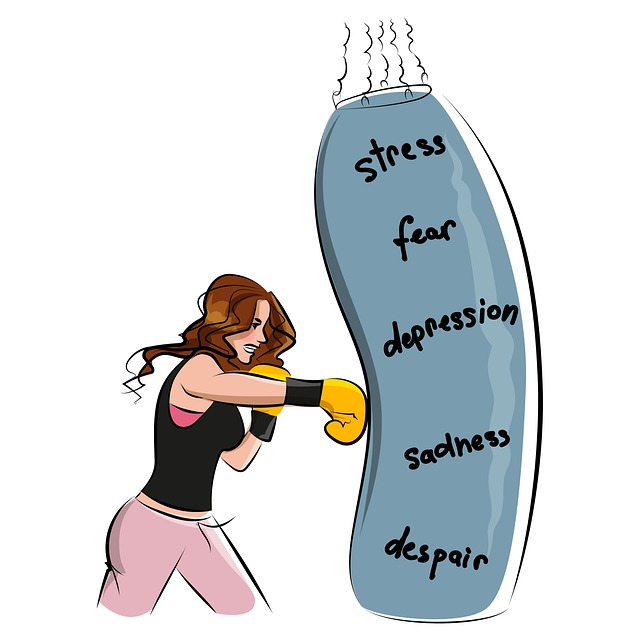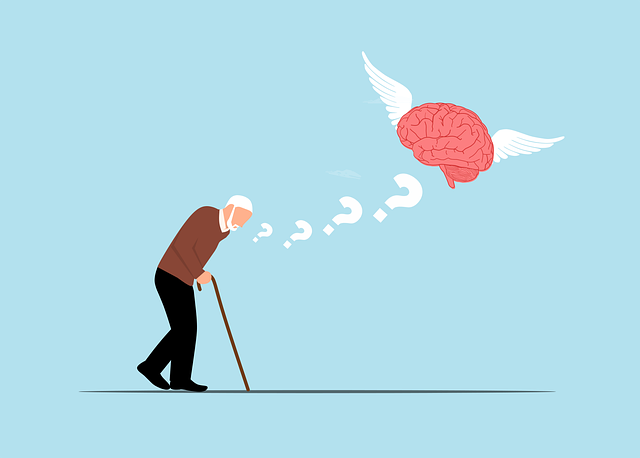Healthcare provider burnout, driven by high-stress environments like heavy workloads and long hours, manifests as exhaustion, cynicism, and detachment, negatively impacting well-being, patient care, and organizational productivity. In Broomfield, ADD-ADHD evaluations therapy recognizes the unique challenges healthcare professionals face, emphasizing self-care practices (e.g., setting work-life boundaries, exercise, balanced diet, adequate sleep), professional support networks, and therapeutic techniques like CBT to manage stress and prevent burnout. Specialized services integrate journaling exercises and podcasts to empower individuals with tailored self-care strategies, enhancing emotional intelligence and quality of life for those diagnosed with ADD/ADHD in Broomfield. Organizations should prioritize mental well-being through open communication, support systems, and access to services like Broomfield ADD-ADHD evaluations therapy, fostering a positive work environment that values resilience and stress reduction.
Healthcare provider burnout is a growing concern, impacting not just individuals but the entire healthcare system. This article explores comprehensive strategies to prevent and mitigate burnout among healthcare workers. We delve into understanding burnout’s intricacies, focusing on Broomfield ADD-ADHD evaluations as a tool for uncovering underlying causes. Additionally, we highlight therapy and supportive measures, alongside fostering resilience in healthcare professionals. By employing these tactics, the industry can create a more sustainable and compassionate work environment.
- Understanding Burnout Among Healthcare Providers
- Broomfield ADD-ADHD Evaluations: Uncovering Underlying Causes
- Therapy and Supportive Measures for Burnout Prevention
- Strategies to Foster Resilience in Healthcare Workers
Understanding Burnout Among Healthcare Providers

Healthcare provider burnout is a growing concern within the industry, impacting not only individual well-being but also patient care and organizational productivity. Burnout results from prolonged exposure to high-stress environments, often characterized by heavy workloads, long hours, and emotional demands. It manifests as feelings of exhaustion, cynicism, and detachment from work. For healthcare providers, this can be particularly concerning as it may lead to reduced clinical decision-making skills, decreased patient satisfaction, and increased errors.
In the context of Broomfield ADD-ADHD evaluations and therapy, understanding burnout is crucial. Healthcare professionals involved in these specialized areas often face unique challenges due to the demanding nature of their work. Self-care practices are essential burnout prevention strategies for healthcare providers. This includes setting clear boundaries between work and personal life, engaging in regular physical activity, maintaining a balanced diet, and prioritizing adequate sleep. Additionally, seeking support through professional networks or peer mentorship programs can provide valuable resources for managing stress and preventing burnout.
Broomfield ADD-ADHD Evaluations: Uncovering Underlying Causes

In Broomfield, ADD-ADHD evaluations play a pivotal role in identifying and addressing underlying causes of attention-deficit/hyperactivity disorder. These comprehensive assessments go beyond diagnosing symptoms to uncover the emotional intelligence and mental wellness nuances that can greatly impact an individual’s life. By integrating advanced therapy techniques, healthcare providers aim to not only manage symptoms but also enhance overall mental wellness.
Broomfield’s specialized services offer guidance through various mental wellness journaling exercises and production of insightful mental wellness podcast series. These initiatives are designed to empower individuals with strategies for self-care and stress management, fostering a healthier balance in their lives. Such personalized approaches ensure that those diagnosed with ADD-ADHD receive tailored support, promoting improved emotional intelligence and enhanced quality of life.
Therapy and Supportive Measures for Burnout Prevention

Burnout prevention for healthcare providers requires a multifaceted approach that includes both therapeutic and supportive measures. Broomfield ADD-ADHD evaluations therapy has emerged as a valuable tool in identifying underlying conditions that can contribute to burnout, such as attention-deficit/hyperactivity disorder (ADD/ADHD). This evaluation can help professionals recognize and manage symptoms that may be exacerbating stress levels.
In addition to these specialized therapies, self-care practices and empathy building strategies play a crucial role. Healthcare providers should prioritize regular breaks, adequate sleep, and engaging in activities outside of work to maintain a healthy work-life balance. Mood management techniques, such as mindfulness meditation and cognitive behavioral therapy (CBT), can also help professionals develop coping mechanisms for stress and emotional fatigue. By implementing these strategies, healthcare providers can create a more sustainable and fulfilling career while ensuring they remain equipped to provide the best possible care to their patients.
Strategies to Foster Resilience in Healthcare Workers

Healthcare workers face unique challenges that can lead to burnout if left unaddressed. To mitigate this, fostering resilience is a key strategy. This involves implementing sustainable self-care routines for better mental health. Encouraging regular breaks, mindfulness practices, and physical activity can help reduce stress levels and improve overall well-being. Additionally, empathy building strategies play a pivotal role in enhancing patient interactions and promoting job satisfaction.
Healthcare organizations should also prioritize emotional healing processes through open communication channels and support systems. Providing opportunities for staff to share experiences, seek advice, and access professional therapy, such as Broomfield ADD-ADHD evaluations and therapy services, can significantly contribute to building resilience. These initiatives not only help individuals cope with stress but also foster a positive work environment that values mental health.
Healthcare provider burnout is a significant concern, but by understanding its causes, such as underlying mental health issues like ADD/ADHD, and implementing preventative strategies, we can foster resilience. Therapies and supportive measures play a crucial role in addressing burnout, while Broomfield ADD-ADHD evaluations can uncover hidden factors contributing to stress. Ultimately, a holistic approach combining evaluation, therapy, and resilience-building strategies is key to maintaining a healthy and effective healthcare workforce.











